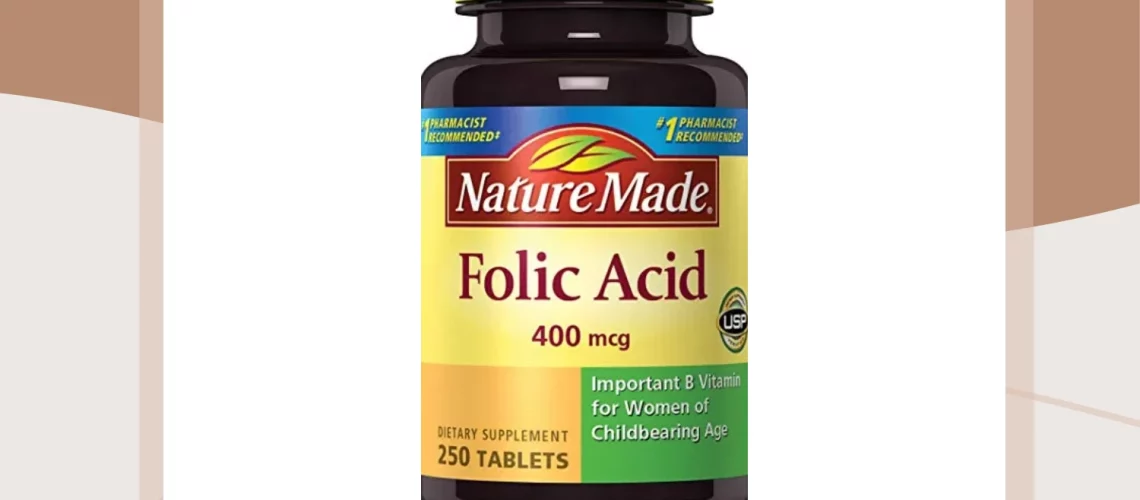Folic acid for pregnant women
Folic acid helps prevent defects of neural tube, which affect the brain (anencephaly) and spinal cord (spina bifida), also it affect the baby’s heart. Neutral tube defects can develop at the first 28 days after conception. Most of the time, the woman doesn’t even know that she is pregnant. More than half of all pregnancies in the world are unplanned, the World Health Organization recommends to take 400 mcg (0,4 mg) of folic acid daily, starting before conception (if you are planning the pregnancy – 1 month before is better) and until the first 12 weeks of pregnancy. If the woman has already a child with neural tube defects, she should ask her doctor for a larger dose. Taking folic acid may even lower your risk of preeclampsia. Also, our body needs this nutrient to make normal red blood cells and prevent types of anemia.
Where to get folic acid from?
The best way is to get the Folic Acid from the supplement with the right amount. Also, you can find it in green leafy vegetables, nuts, beans, citrus fruits and other. But! Your organism absorbs the synthetic version of folic acid better than the natural one from food. So even if you eat a balanced diet, a supplement is very important and recommended in 100% cases.
Iron components
Iron helps blood in both the mother and the baby to carry oxygen. It is the important component of hemoglobin (a protein that helps to transfer the oxygen to tissues), myoglobin (a protein that helps supply oxygen to your muscles), collagen (a protein of bones, cartilages and other connective tissue) and many other proteins. Also, it helps maintain a healthy immune system. If there is a deficit of this nutrient the iron-deficiency anemia can take place. Preventing iron-deficiency anemia can cut your risk of preterm delivery, low birth weight, and infant mortality.
Why do you need more iron during a pregnancy?
The amount of blood in your body increases by 20-50%. You need extra iron for more hemoglobin. Your baby needs extra iron for growth, especially in the second and third trimesters. Also, many women start their pregnancy with insufficient stores of iron in their body.The pregnant woman needs 27 mg of iron daily. Red meat, poultry, seafood, liver, grains, legumes – add good content of animal iron and plant iron in our food.
How do you can get as much iron as possible from your diet?
Always cook in a cast iron pan. Include a source of Vitamin C (orange juice, strawberries, broccoli, onion, lemon) with every meal, especially with plant iron it will increase absorbing of Iron to 6 times more. Try not to eat iron contain products with coffee and tea, soy foods and dairy products (this food contains iron inhibitors, that can decrease the absorption of iron). Also, try to eat the iron contained products on empty stomach for increased absorption. Make a space during the day between eating food with iron and with calcium.
Should you take an iron supplement?
It depends on your diet (how much iron consist food you have), season (you get less iron at cold seasons) and your medical test of blood (can show if you have the iron deficit anemia). Also, it is always good to take Multivitamin Complex with daily need amount of iron. If your analysis of food and diet is not good (you may have the low amount of hemoglobin or erythrocytes, etc), in such situations your doctor can give you extra iron.
What side effects you are prone to?
You may have constipation; it is a common problem of many pregnant women, drinking prune juice or taking other natural laxatives can help you deal with this problem. But if you have over constipation or diarrhea, nausea or other stomach problems, please consult your doctor, he will help you. And don’t worry if your stools look darker, this is because you are taking iron in your food this is a harmless side effect.
In conclusion
Pons Medical Research is a leading provider of surrogacy programs in Ukraine with expertise in ICSI fertility treatment through ICSI IVF / PICSI and using ICSI Procedure, suggests for a good prenatal dietary and nutrition plan for its clients.
You should start to take prenatal vitamins before you begin trying to get pregnant, if possible. Folic acid is one of the main prenatal vitamins for your baby. Iron will help you to have a good health during the pregnancy. Don’t forget to take your vitamins daily and have a healthy good and balanced diet. Pons Medical Research wishes you a healthy pregnancy, full of great emotions and good useful vitamins!

